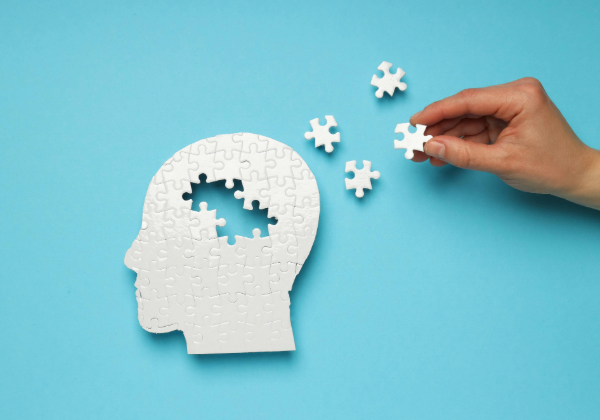 When most people think about their health, they focus on the body: the heart, the lungs, the muscles. But what about the brain? The brain deserves just as much attention, and protecting it should start earlier than you think.
When most people think about their health, they focus on the body: the heart, the lungs, the muscles. But what about the brain? The brain deserves just as much attention, and protecting it should start earlier than you think.
“By mid-life, it’s worth thinking about keeping your brain health,” stated Jeremy Herskowitz, Ph.D., Patsy W. and Charles A. Collat Endowed Professorship and associate professor in the UAB Department of Neurology. “But in reality, there are ways to support your brain at every stage of life. Some of the most important steps include regular exercise, eating a balanced diet, and finding healthy ways to manage stress.”
Herskowitz and Marissa Natelson Love, M.D., associate professor in the Department of Neurology, share their insights on how to maintain and protect brain health throughout life.
Building brain resilience through lifestyle habits
Research has long shown that lifestyle choices are vital in maintaining brain health. Both physical exercise and mental stimulation help protect cognitive function and slow age-related decline.
Exercise is particularly powerful. Not only does it increase blood flow to the brain and ease stress, but it also helps reinforce synapses, the connections between neurons that allow us to think, learn, and remember.
“Synapses are the communication lines of the brain,” Herskowitz explained. “Keeping them strong through regular movement is one of our best defenses against memory loss.”
Mental stimulation is equally important. Activities like crossword puzzles, Sudoku, or even learning a new skill challenge the brain and keep those synaptic connections active. Social engagement also plays a role; conversations, friendships, and community connections all serve as mental workouts that keep the mind sharp.
Natelson Love noted that social engagement has lasting health benefits beyond keeping the mind active.
“Social connection benefits brain health in multiple ways by providing cognitively stimulating interactions, a boost in mood, and a network for support where needed,” she explained. “I recommend that those who live alone join a group doing activities that they enjoy, whether that includes Silver Sneakers at the YMCA, a religious organization, or a book club. The shared interest and benefits will be motivating to maintain those connections.”
Recognizing when memory changes are more than aging
One of the most common questions older adults and their families face is whether forgetfulness is a regular part of aging or a signal of something more serious. Occasional lapses, like misplacing keys or forgetting a word, can be a typical aspect of aging. But when memory changes interfere with everyday life, it may be time to look closer.
“The most important thing to consider is whether or not the cognitive changes have led to functional loss,” Natelson Love explained. “If someone needs help to complete a task that they could previously do independently, that is concerning, as this might be more serious. Normal cognitive aging typically involves slowing down your cognitive skills, which might mean you don’t remember a word right away, but it will come to you later, for example.”
Catching these signs early can allow for better planning, earlier intervention, and access to resources supporting patients and caregivers.
The future of Alzheimer’s research
While daily habits can strengthen and protect the brain, UAB researchers are working to uncover new therapies to fight Alzheimer’s disease.
“My research team is identifying therapeutic targets that will help prevent memory loss in Alzheimer’s by strengthening synapses and communication between neurons,” Herskowitz explained. “There are also advances being made to visualize disease progression by imaging Alzheimer’s disease pathology in the brains of living patients. “
These advances allow researchers to detect disease earlier, improve the design of clinical trials, and move discoveries from the lab to patient care more quickly.